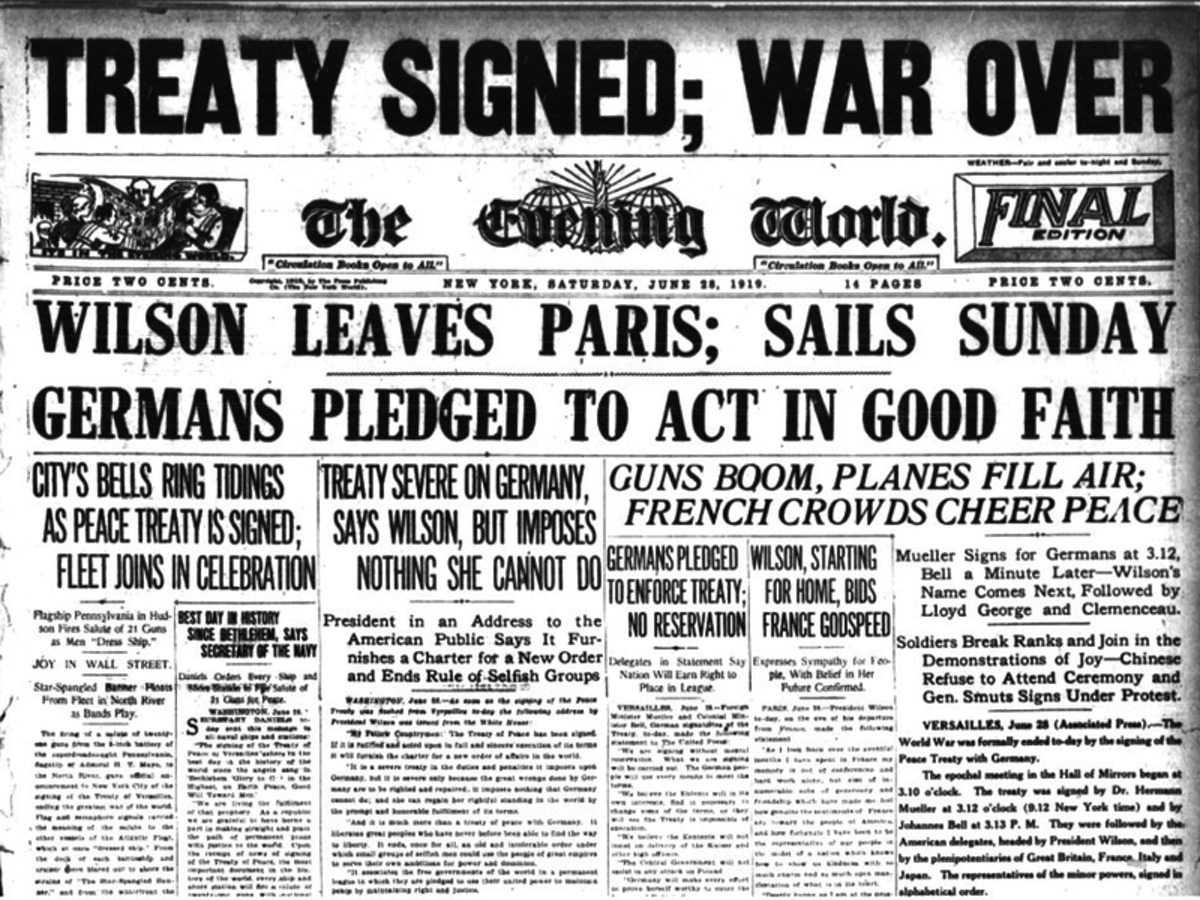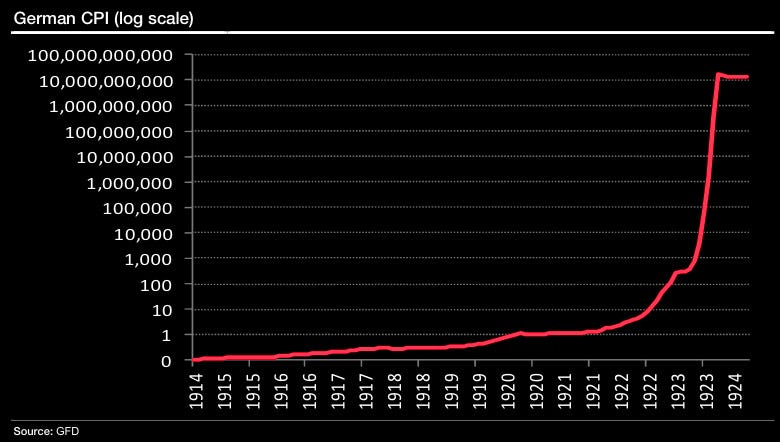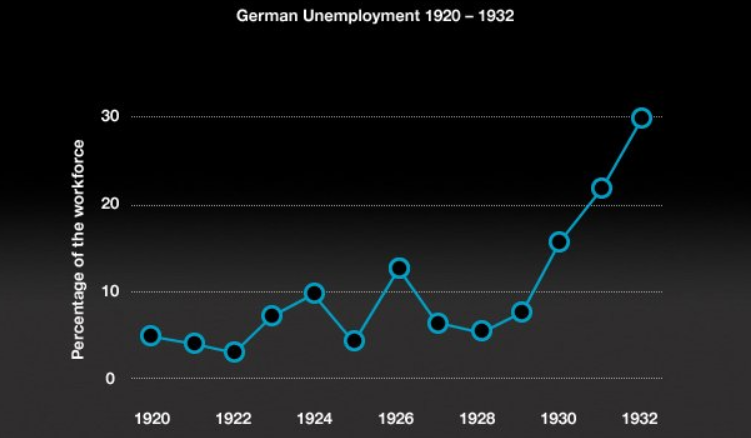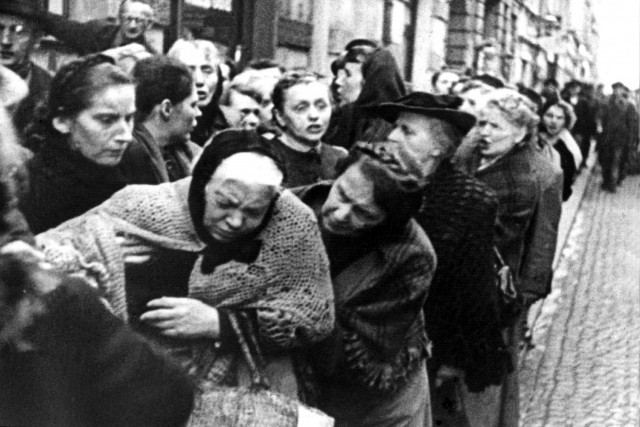"The Allied and Associated Governments affirm and Germany accepts the responsibility of Germany and her allies for causing all the loss and damage to which the Allied and Associated Governments and their nationals have been subjected as a consequence of the war imposed upon them by the aggression of Germany and her allies."
~ War Guilt Clause in The Treaty of Versailles,
June 28, 1919
"The article was seen as a concession to the Germans by the negotiators. It was bitterly resented, however, by virtually all Germans who did not believe they were responsible for the outbreak of the war"(Facing History and Ourselves).

Newspaper Article, 1919, The Conversation


